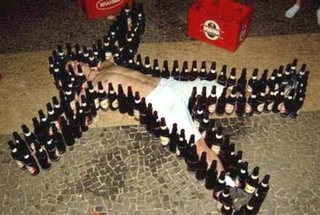From a scholastic standpoint, it means there will be less controversy over point location questions on the national exams, especially with non-TCM trained acupuncturists. From a research perspective, standardizing conflicting acupuncture point location was essential to decrease the amount of limitations in a study. From a practitioner standpoint, I just hope the CEU class I will doubtless be required to take will be someplace tropical.
Wednesday, Nov. 29, 2006
WHO CONFAB FINDS AGREEMENT
Acupuncture point standard nailed down
By YUKIKO MAEDA
Kyodo News
Acupuncturists from Japan, China and South Korea ironed out long-standing differences over the precise location of acu-points during a recent conference held under the auspices of the World Health Organization.
With the successful results of the conference on the international standardization of acu-points -- or "tsubo" as they are known in Japan -- the practitioners hope that acupuncture and moxibustion will become more popular in the United States and Europe.
Acupuncture is believed to have originated in China more than 2,000 years ago. It was introduced to Japan via the Korean Peninsula during the sixth century.
There are 361 acu-points in the human body. In 1989, the WHO standardized their international names.
But there was no agreement concerning their precise location until participants reached an agreement at the WHO conference held in Tsukuba, Ibaraki Prefecture, between Oct. 31 and Nov. 2.
While Japan, China and South Korea each boast a long history of administering acupuncture and moxibustion, the location of 92 acu-points differed slightly among the three countries.





